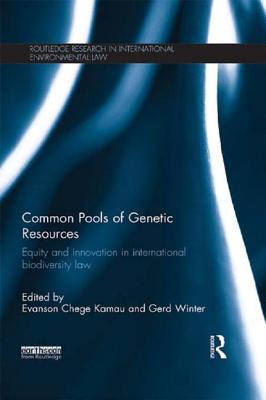Managing genetic resources and traditional knowledge is critical to one of the most significant issues facing the global environment – maintenance of biodiversity. Written by a team of expert academics and practitioners in the field, this innovative book makes a timely and valuable contribution to academic and policy debates in International Environmental Law, International Biodiversity Law, Intellectual Property, Climate Law and the Law of Indigenous Populations. Taking an inductive approach, it starts from existing pools and discusses how they could be further developed to cope with the objectives of the Nagoya Protocol.
The Convention on Biological Diversity (CBD) strives for the sustainable and equitable utilization of genetic resources, with the ultimate goal of conserving biodiversity. The CBD and the Nagoya Protocol which has since been elaborated suggest a bilateral model for access to genetic resources and the sharing of benefits from their utilization. There is concern that the bilateral exchange "genetic resource for benefit sharing" could have disappointing results because providers are left out of the process of research and development, benefits are difficult to be traced to sources, and providers owning the same resource may complain of being excluded from benefit sharing. Thus, the CBD objective of full utilization and equitability may become flawed.
Common Pools of Genetic Resources: Equity and Innovation in International Biodiversity Law suggests common pools as a complementary approach to bilateralism. This is one of the first books to reply to a number of complex legal questions related to the interpretation and implementation of the Nagoya Protocol. Taking an inductive approach, it describes existing pools and analyzes how they are organized and how they perform in terms of joint R&D and benefit sharing. It presents case studies of the most characteristic types of common pools, provides suggestions for further developing existing pools to cope with the requirements of the CBD and NP and, at the same time uses the clauses these conventions contain to open up for commons approaches.
Written by a team of expert academics and practitioners in the field, this innovative book makes a timely and valuable contribution to academic and policy debates in international environmental law, international biodiversity law, intellectual property law, climate law and the law of indigenous populations.
Get Common Pools of Genetic Resources by at the best price and quality guranteed only at Werezi Africa largest book ecommerce store. The book was published by Taylor & Francis Ltd and it has pages. Enjoy Shopping Best Offers & Deals on books Online from Werezi - Receive at your doorstep - Fast Delivery - Secure mode of Payment
 Jacket, Women
Jacket, Women
 Woolend Jacket
Woolend Jacket
 Western denim
Western denim
 Mini Dresss
Mini Dresss
 Jacket, Women
Jacket, Women
 Woolend Jacket
Woolend Jacket
 Western denim
Western denim
 Mini Dresss
Mini Dresss
 Jacket, Women
Jacket, Women
 Woolend Jacket
Woolend Jacket
 Western denim
Western denim
 Mini Dresss
Mini Dresss
 Jacket, Women
Jacket, Women
 Woolend Jacket
Woolend Jacket
 Western denim
Western denim
 Mini Dresss
Mini Dresss
 Jacket, Women
Jacket, Women
 Woolend Jacket
Woolend Jacket
 Western denim
Western denim
 Mini Dresss
Mini Dresss




